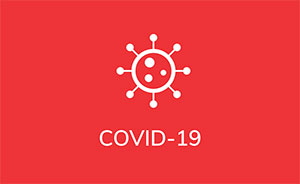Lilly’s anti-SARS-CoV-2 combination of the monoclonal antibodies (mAb) bamlanivimab and etesevimab joins Regeneron’s REGEN-COV combination of the monoclonal antibodies casirivimab and imdevimab. This is yet another lifesaving option for COVID-19 post-exposure prophylaxis.
The broadened emergency use authorization (EUA) of Lilly’s monoclonal antibody combination is good news for CLL patients who could qualify for this expanded EUA due to being considered high risk for progressing to severe COVID-19 disease due to compromised immunity.
Here are some pertinent details quoted from the FDA’s EUA:
“Bamlanivimab and etesevimab, administered together, may only be used as post-exposure prophylaxis for adults and pediatric patients (12 years of age and older weighing at least 40 kg) who are:
- At high risk for progression to severe COVID-19, including hospitalization or death, and
- Not fully vaccinated or who are not expected to mount an adequate immune response to complete SARS-CoV-2 vaccination (for example, people with immunocompromising conditions, including those taking immunosuppressive medications), and
- Have been exposed to an individual infected with SARS-CoV-2 …”
Resistance to Lilly’s mAb can be a problem in some locales, but the combination helps overcome that. Again, quoting from the FDA: “Bamlanivimab and etesevimab are not authorized for use in states, territories, and US jurisdictions in which the combined frequency of variants resistant to bamlanivimab and etesevimab exceeds 5%”.
The same geographic restriction applies to its use for those testing positive early in their COVID-19 course who have CLL. Accordingly, we can rest assured that it will be a strong choice when and where we might need it.
For the official FDA statement on this approval with much more detail, please see FDA authorizes bamlanivimab and etesevimab monoclonal antibody therapy for post-exposure prophylaxis (prevention) for COVID-19.
For more on the prior REGEN-COV approval, please see our CLL Society article FDA Okays Regeneron COVID-19 Antibody as Preventive for Chronic Lymphocytic Leukemia (CLL) and other Immunocompromised Patients.
For more on understanding how monoclonal antibody combinations such as bamlanivimab and etesevimab can help those like us with impaired immunity, please read Anti-SARS-CoV-2 Monoclonal Antibodies for Chronic Lymphocytic Leukemia (CLL) and Other High-Risk Patients Who Test Positive for COVID-19.
We also discuss why obtaining passive immunity with mAb treatments might be more effective for immunocompromised CLL patients in this background article Chronic Lymphocytic Leukemia (CLL) Patients and Protection Against COVID-19: Passive and Active Immunity, Monoclonal Antibodies, and Vaccines.
And if you haven’t already, please download and complete your personal COVID-19 Action Plan.
This recently expanded approval might also help somewhat with the issue of short supplies currently being experienced with these lifesaving antibodies. There are two ways that these shortages would largely be preventable if everyone got vaccinated. First, we could be assured of having a more adequate supply of this expensive and limited therapy for those like us who do not respond to the vaccine and need the help of a passive immune option if these antibodies were not being consumed by those who refuse vaccination and then find themselves in COVID trouble. And second, there would be fewer overall COVID-19 infections in everyone, including the vulnerable like us, if vaccination rates were much higher.
CLL Society wants everyone to get vaccinated, and for all CLL patients who previously received the Pfizer or Moderna vaccines to get the third (booster) dose.
We also want to make sure we all know about and have access to monoclonal antibodies, such as bamlanivimab and etesevimab, should we be exposed or test positive for COVID-19.
Stay strong. We are all in this together.
Brian Koffman MDCM (retired) MS Ed
Co-Founder, Executive VP and Chief Medical Officer
CLL Society, Inc.

















